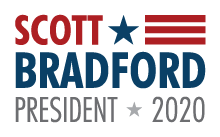[The Congress shall have Power] To promote the Progress of Science and useful Arts, by securing for limited Times to Authors and Inventors the exclusive Right to their respective Writings and Discoveries.
U.S. Constitution, Article I, Section 8, Clause 8
The federal government has the constitutional authority to establish intellectual property protections for authors (copyright) and inventors (patents). The stated purpose of this authority is to “promote the progress of science and useful arts.”
Without patent protections, inventors would have difficulty making money from their inventions…because any other business could just copy the innovative techniques and make their own versions. If I invented a completely brand new kind of steering wheel hand massager, I have the right to profit from it…for a while. Even if I don’t mass-produce it, those that do need to pay me to license the patent.
Unlike copyrights, whose lengths have gotten wildly and absurdly long, patents are still limited to a reasonable twenty year term. After the term expires, patents enter the public domain. The reason the founders intended these protections to last only for “limited times” is so that, first of all, we could maintain a vibrant and useful public domain and, second, to encourage creators and inventors to keep creating and inventing instead of milking their old creations and inventions forever.
What has happened, however, is that lots of things that should not be patentable get patented. Things that aren’t novel, or are “obvious,” are not supposed to be eligible. Neither are mathematical formulas and algorithms, but, inexplicably, the U.S. Patent and Trademark Office (USPTO) allows software patents, even though software is a set of mathematical instructions to a computer.
I work in I.T., and my industry has seen some of the dumbest imaginable patent lawsuits…and some of the dumbest patents. Things like “displaying icons on a screen” have been patented, and then patent troll firms have bought those patents and sued everybody they could find. And in one memorable case, Oracle sued Google for violating its patents on the Java programming language…even though the language was open source and free to use.
The courts often rule wrongly in these cases because they often don’t seem to understand the technology…but even when they rule “correctly” under the law and USPTO regulations, those laws and regulations are incoherent or ill-conceived.
I support significant patent reform, including the complete elimination of software patents (with some phase-out period for those previously awarded) and more authority for the USPTO to reject patents that are obvious or insufficiently novel.
